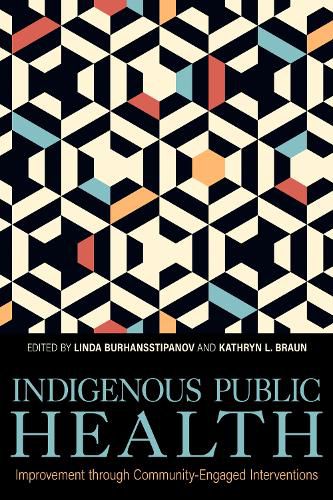Readings Newsletter
Become a Readings Member to make your shopping experience even easier.
Sign in or sign up for free!
You’re not far away from qualifying for FREE standard shipping within Australia
You’ve qualified for FREE standard shipping within Australia
The cart is loading…






The World Health Organization (WHO) defines social determinants of health as the conditions in which people are born, grow, live, work and age and the fundamental drivers of these conditions. Income, education, job security, food and housing, as well as gender and race are all examples of social determinants of health. These factors influence the health and wellbeing of patients, as well as how they interact with and receive healthcare. Unfortunately for some communities, many of these key factors to health are often jeopardized. Indigenous groups in North America and US associated Pacific jurisdictions have historically had troubled relationships with the federal government, experiencing occupation and forced relocation, mandated boarding schools, and attempts to eliminate cultural strengths and resources These denigrating experiences have marginalized these indigenous populations and increased their risk of poverty, food and housing insecurity, poor health, and limited access to healthcare.
Indigenous Public Health: Improvement through Community-Engaged Interventions illustrates how successful community engagement strategies, programs, and resources within indigenous communities have resulted in diverse, successful public health programs, and helped community members overcome barriers to health. Editors Linda Burhansstipanov and Kathryn L. Braun explore the problems that impact engagement efforts, such as racism or resilience, and also discuss public health topics, such as infectious diseases, cancer, diabetes, and cardiovascular disease. The overarching focus of this book is to acknowledge and honor the strengths of different communities and emphasize that community collaboration and the sharing of resources can only improve the lives of all communities.
$9.00 standard shipping within Australia
FREE standard shipping within Australia for orders over $100.00
Express & International shipping calculated at checkout
The World Health Organization (WHO) defines social determinants of health as the conditions in which people are born, grow, live, work and age and the fundamental drivers of these conditions. Income, education, job security, food and housing, as well as gender and race are all examples of social determinants of health. These factors influence the health and wellbeing of patients, as well as how they interact with and receive healthcare. Unfortunately for some communities, many of these key factors to health are often jeopardized. Indigenous groups in North America and US associated Pacific jurisdictions have historically had troubled relationships with the federal government, experiencing occupation and forced relocation, mandated boarding schools, and attempts to eliminate cultural strengths and resources These denigrating experiences have marginalized these indigenous populations and increased their risk of poverty, food and housing insecurity, poor health, and limited access to healthcare.
Indigenous Public Health: Improvement through Community-Engaged Interventions illustrates how successful community engagement strategies, programs, and resources within indigenous communities have resulted in diverse, successful public health programs, and helped community members overcome barriers to health. Editors Linda Burhansstipanov and Kathryn L. Braun explore the problems that impact engagement efforts, such as racism or resilience, and also discuss public health topics, such as infectious diseases, cancer, diabetes, and cardiovascular disease. The overarching focus of this book is to acknowledge and honor the strengths of different communities and emphasize that community collaboration and the sharing of resources can only improve the lives of all communities.